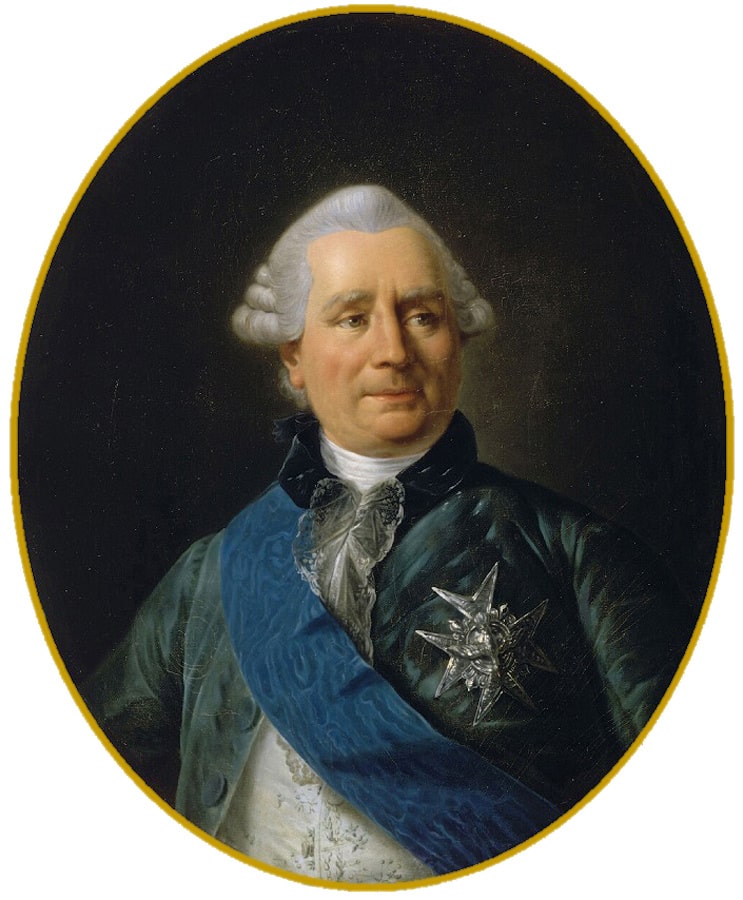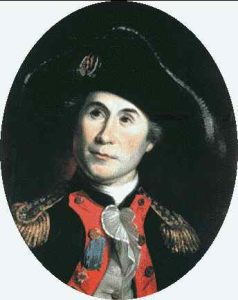Contents

Contents
Quick facts
- Born: 20 December 1719 in Dijon, France.
- Charles Gravier, Count of Vergennes, was a prominent French diplomat and statesman, serving as the Foreign Minister under King Louis XVI.
- He played a key role in shaping French foreign policy during the American Revolutionary War, strongly advocating for French support of the American cause.
- Vergennes was instrumental in negotiating the Treaty of Alliance with the United States in 1778, which formalized the Franco-American alliance against Great Britain.
- He skillfully managed France’s international relations, balancing the American alliance with concerns about escalating conflicts in Europe.
- Vergennes also contributed to the negotiations leading to the Treaty of Paris in 1783, which officially ended the American Revolutionary War.
- His diplomacy extended beyond the American Revolution, influencing European politics, particularly in relation to the Ottoman Empire and Poland.
- Vergennes’ tenure as Foreign Minister marked a significant period in French diplomacy, characterized by a more assertive and influential France on the global stage.
- Died: 13 February 1787 in Versailles, France.
Biography
Comte de Vergennes, born Charles Gravier in 1717, was a French statesmen who became the French foreign minister under King Louis XVI.
He was introduced to the profession of diplomacy by his uncle, M. de Chavigny, under whom he saw his first service at Lisbon. His successful conduct of French interests at the court of Trier in 1750 and the following years led to his being sent to Constantinople in 1755 at first as minister plenipotentiary, then as ambassador. In 1768 he was recalled, ostensibly because of a misalliance with Mme. Testa, widow of a Pera surgeon, but really because the duc de Choiseul, then Foreign Minister, thought him not zealous enough in provoking a quarrel between Russia and Turkey. After Choiseul’s death he was sent to Stockholm with instructions to help the aristocratic party of the Hats
with advice and money.
The revolution by which Gustavus III (19 August 1772) secured for himself the reality, instead of the shadow, of power was a great diplomatic triumph for France. With the accession of Louis XVI Vergennes became foreign minister. His general policy was one of friendly relations with Austria, combined with limitations to Joseph II’s ambitious designs, the protection of Turkey, and opposition at all points to England.
His hatred of England and his desire to avenge the disasters of the Seven Years’ War led to his support of the American States in the Revolutionary War (a step which ultimately led to financial and political disaster for the French and to the Revolution of 1789). Vergennes sought by a series of negotiations to secure the armed neutrality of the Northern powers, eventually carried out by Catherine II; he ceded to the demands of the playwright and revolutionary Beaumarchais that France should secretly provide the Americans with arms and volunteers. In 1777 he informed the American commissioners — Benjamin Franklin, Arthur Lee, and John Adams — that France acknowledged the Republic and was willing to form an offensive and defensive alliance with it; the Treaty of Alliance was signed 6 February 1778.
In domestic affairs Vergennes belonged to the old school. He intrigued against Jacques Necker, the Director-General of Finance, whom he regarded as a dangerous innovator, a republican, a foreigner and a Protestant. In 1781 he became chief of the Council of Finance, and in 1783 he supported the nomination of Charles-Alexandre de Calonne as Controller-General.
Vergennes died in 1787, before the meeting of the Assembly of Notables, which he is said to have suggested to Louis XVI.


